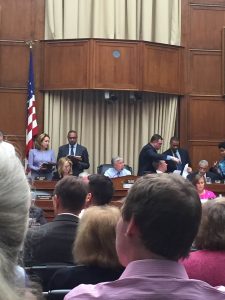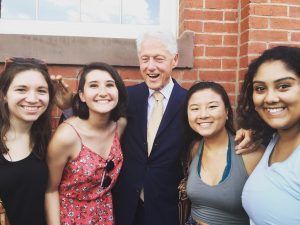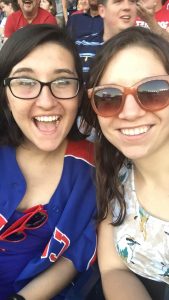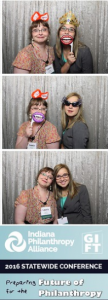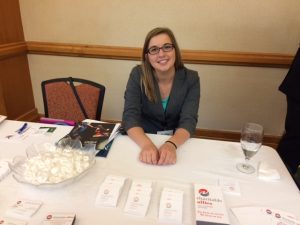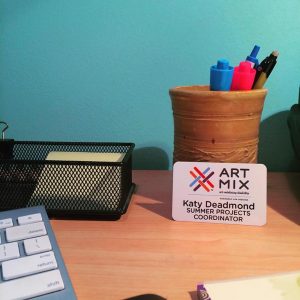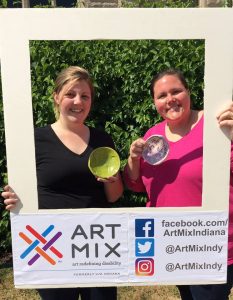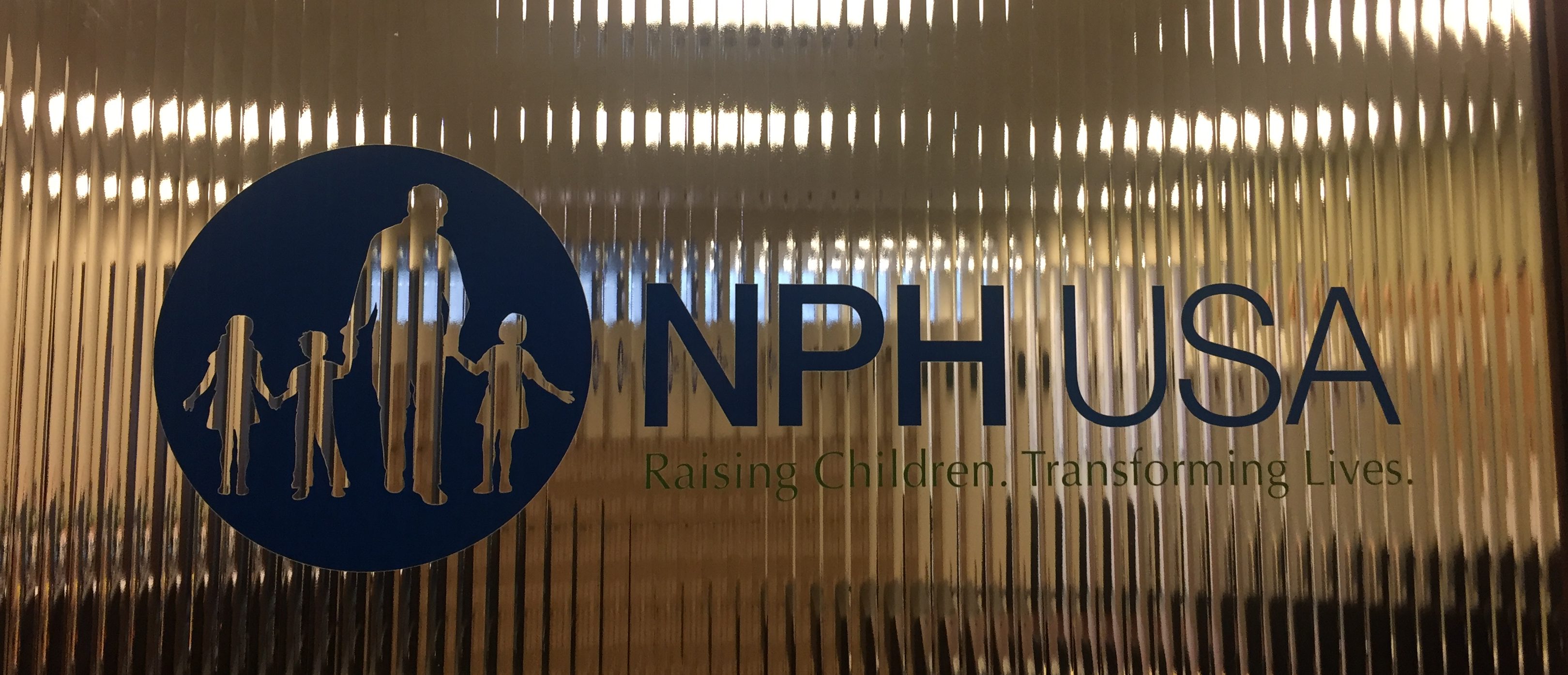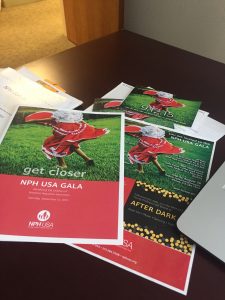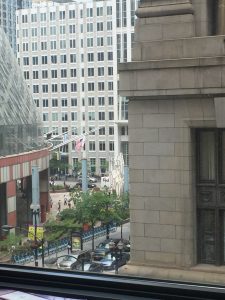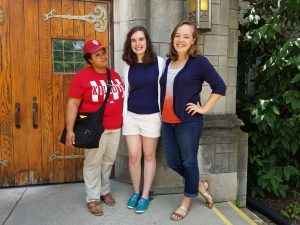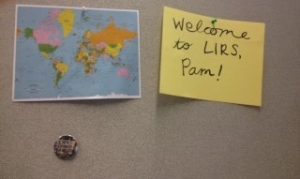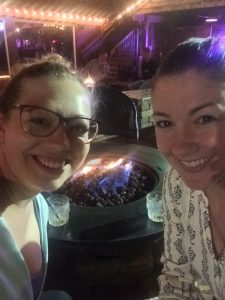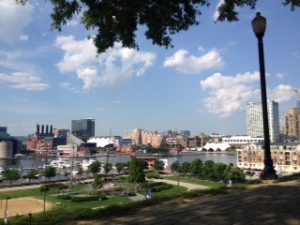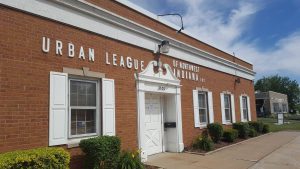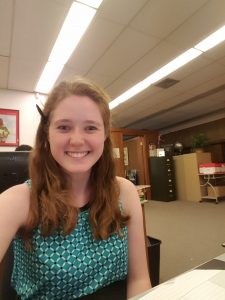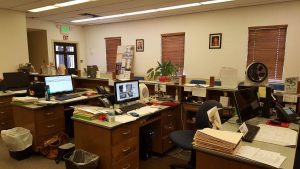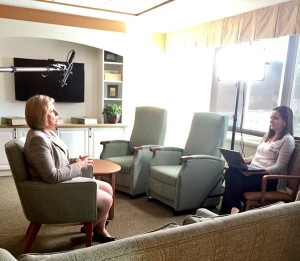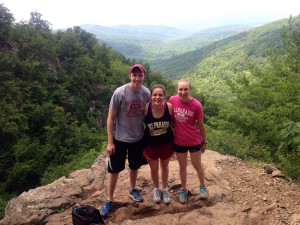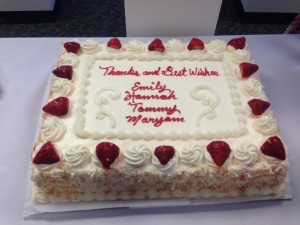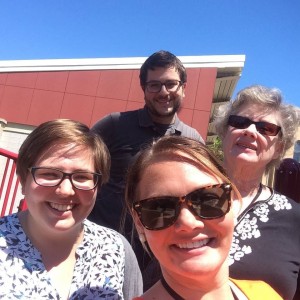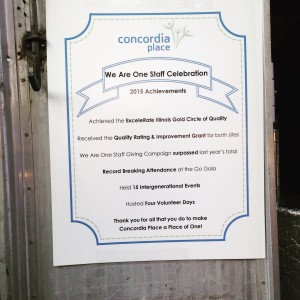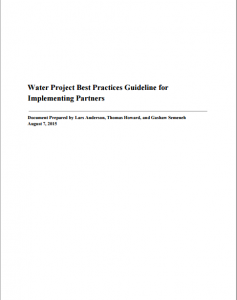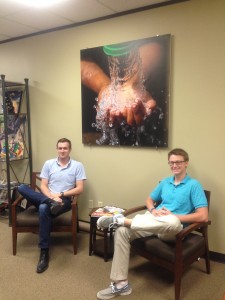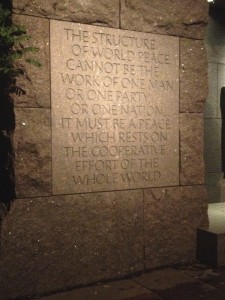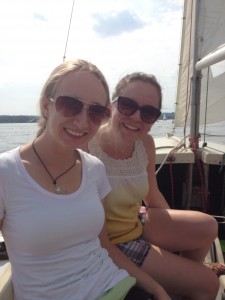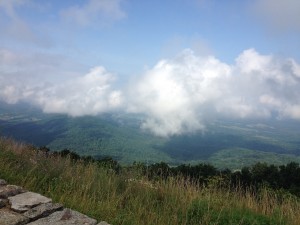“What is that you said you are studying? Global Service? Is that a major? I’ve never heard of it before. And an engineering minor you say?
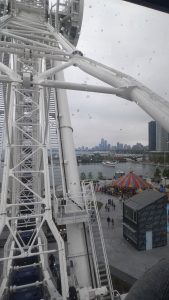
I do have some time on the weekends! Enough to go see the view of Chicago from Navy Pier.
I always get these questions when I share my career as a student at Valparaiso University. I almost dread the questions, because I always have to explain my entire life-plan for it to really make sense.
Whenever I get these questions, I think about how there is a huge opportunity to use engineering in the field of development. But not only to build things, there is a need for people concerned with efficiency and sustainability, people with the mind of an engineer, in this field. I think about how there is a need for people who can draw on their technical knowledge to make practical plans, people who can communicate and research, and who tend to look from every angle to creatively develop solutions to ever arising problems. Engineers can fill the gap between an organization’s planning team and the technicians on the ground, preventing the in-cohesiveness that is present in many development projects around the world.
But how can I explain this all in the one-line answer that people expect?
I manage to stutter out something that includes the words ‘engineering’, ‘help’, and ‘developing countries’, and I’m usually satisfied that I had at least gotten the idea across.
Then, it’s not hard to tell that many people who have heard my elevator pitch life-plan tend to have some concerns about my future. I think it’s pretty nice of them to care about my future.
Generally, people tend to expect that I will work with a non-profit and so they worry that I won’t make any money. Then they begin to wonder whether an engineering minor is enough to provide technical expertise in engineering. These are fair concerns, and be assured, I have thought about them extensively. I’m not too bothered by the first one (and if you want extra reading I suggest you google the term ‘social business’–I find it fascinating!) but the second question has certainly caused me distress.
Last year when I was thinking about studying Global Service, the biggest thing that was holding me back from switching majors was that I didn’t know if an engineering minor would prepare me enough for what I want to do. Would people accept my input if I didn’t have an engineering degree? Would I be handicapped by not having taken some upper level engineering courses like Thermodynamics? Would I still be able to complete technical tasks without having a full major?
Eventually, and after much praying, I heard God calling me to study humanitarian work, even if it meant my future wouldn’t be as secure as it would be in the engineering field. But being able to surrender your future to him– that is what faith is about, is it not? So I became a Global Service major. All the same, a few weeks later I was thoroughly demoralized by something a professor in the engineering department told me, ( a non-major), as I signed up for his 400 level course. Trying to be comforting, he told me not to worry, I would do just fine because the course would be mostly theoretical and I wouldn’t have to worry about doing any calculations. I knew for myself that I could handle doing calculations, I mean, I had completed almost all the same classes that any mechanical engineering major in my year would have, but what really got me down was that this professor was expecting me to be incapable of engineering work.
Through the CAPS fellowship, I was places with aqUV, a new company that manufactures water bottles that purify water from bacteria and viruses using UV-C light. Its philanthropic focus is to implement the technology in Haiti where clean water is a scarcity. Coming into my internship this summer, I was worried that people here would have lower expectations of me as well. I worried that either all the difficult technical work would be given to my partner Jacob, a senior mechanical engineering major who seemed more qualified to deal with it, or I worried that I would be given technical work, but that I wouldn’t be able to handle it.
My worry could not have been more misplaced.
The first day I came in, I was assigned a complicated, technical task. you can imagine my happiness when the first fear was demolished! The task was to design and create a machine that would stress test the bases of the water bottles to find out how many times they could run before some part, the UV bulb or the circuitry, failed. I was given a few tools– an arduino chip, a breadboard, and some wires– and I was told to go. For this project, I taught myself to code arduino, to use mosfets, displays, and micro-controllers; I drew circuit diagrams, made code flowcharts, designed parts and modeled them on a computer; I learned to solder electrical components, and to 3-D print parts. And finally, after it all, I felt like I had learned more in the first few days of my internship than I had the entire last semester of school!
Task 1: step by step
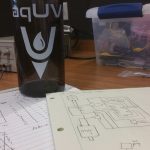
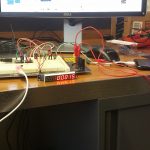
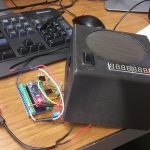
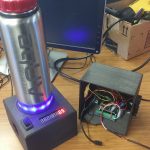
Stage 1: Planning Stage 2: Testing Stage 3: Building Stage 4: Test the finished product!
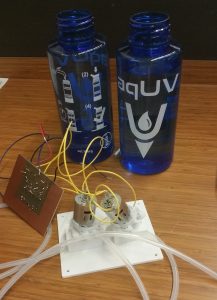
Task 3 involves pumping water in and out of bottles.
Since then, I have not had a boring moment. My supervisor, Dr. Blood, is a fountain of information and ideas, and I have taken to fumbling for a pen and paper almost every time he speaks so as not to miss something important. I have even created a list entitled ‘Dr. Blood’s Idea List’ that I continue to add on to almost daily. My partner Jacob is a blast to work with and always willing to lend a hand, as long as he can make a few jokes along the way (in fact, the title was his idea). I have worked on about 5 tasks since I finished the stress test system, and I continue to learn about all kinds of things! One day I’ll learn about how electricity works within building, the next I’ll be discovering how to use solar panels to deliver energy, and then later I’ll be using water pumps, or making circuit boards. I find myself not only able to do my own work, but occasionally able to help with other people’s projects.
I have grown so much during my internship, not only in hands on abilities and knowledge, but most notably I think in my confidence in my ability to learn and to solve problems. I have been able to prove to myself that I can bring some engineering abilities to the humanitarian field, and I have been affirmed in the place that I felt God calling to me last year when I was debating a switch in majors. Of it all, I am most excited to travel to Haiti in a few weeks to implement some of the work we have been doing!
So if you’ve been reading this the whole time wondering the answer to the title question is, here you go: No, my feet do not smell, but my head is certainly running (shoutout to ebrown15), as I’m sure all the heads of interns are this summer! And all I can say is thank you to all who made this possible, learning all these things has certainly been priceless to me.
— Kortney Cena
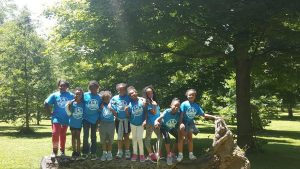
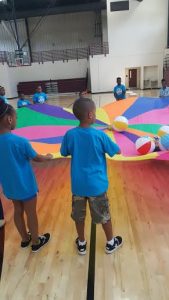
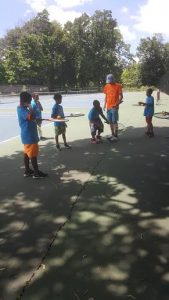

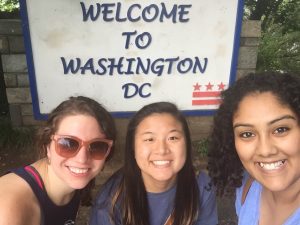
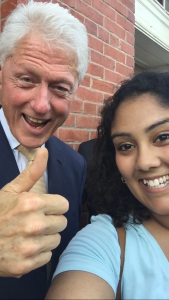
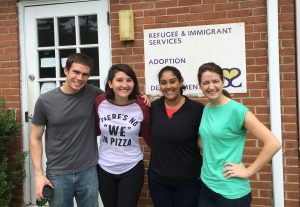
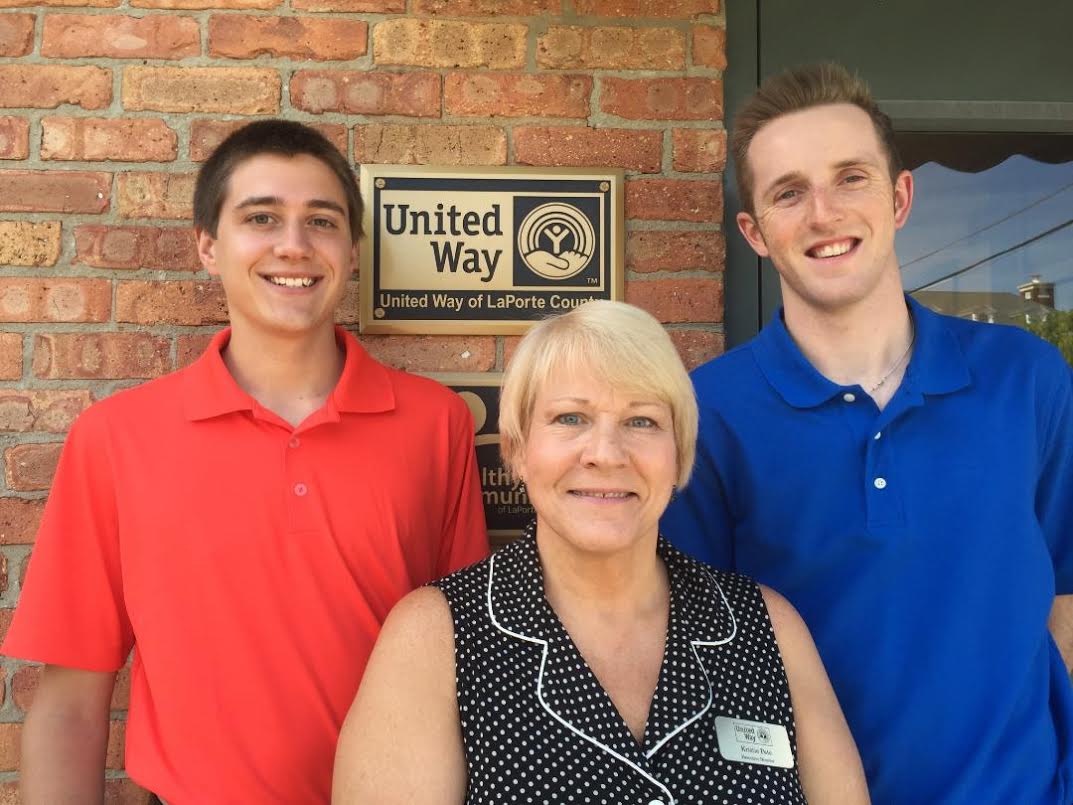
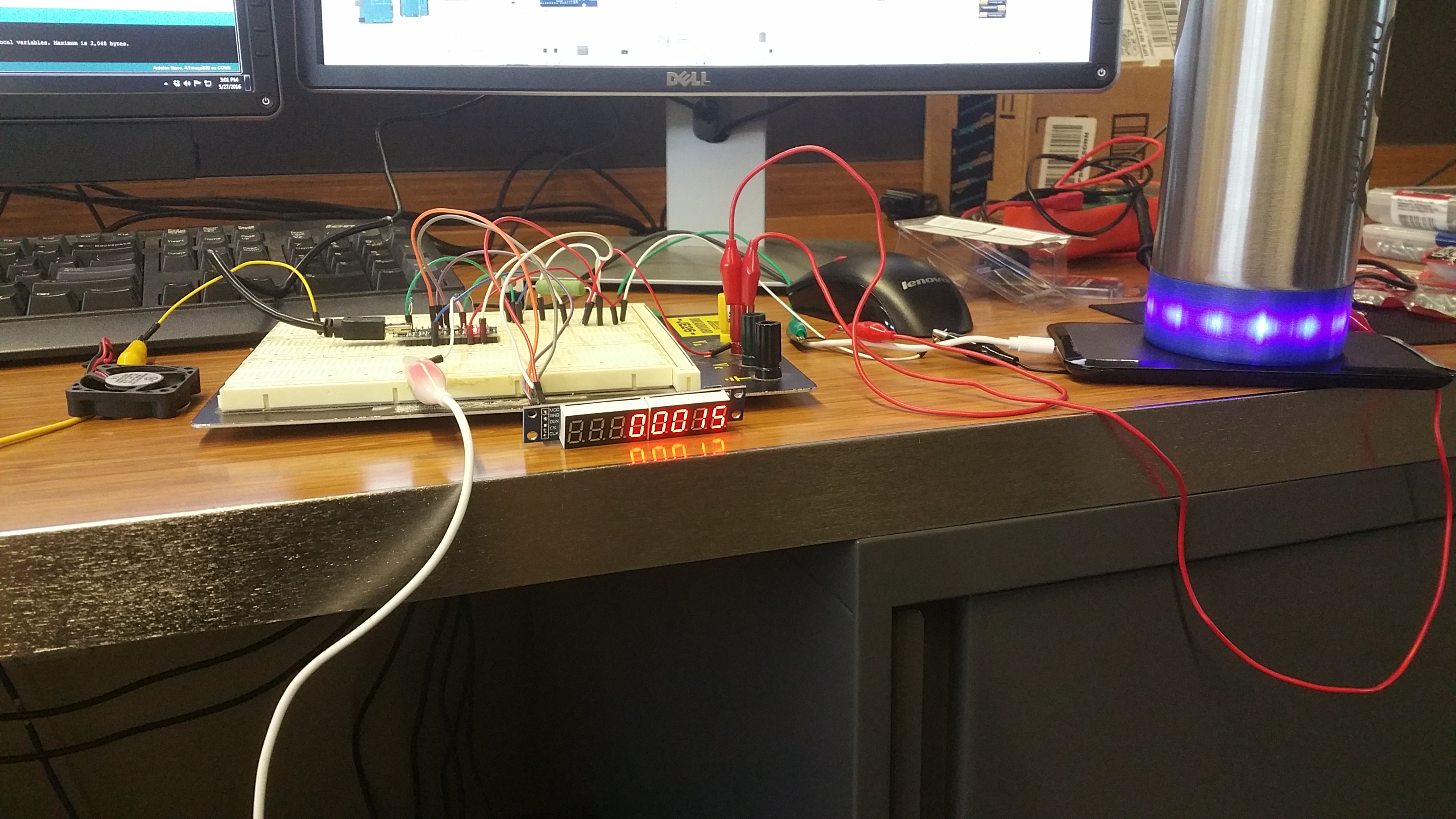










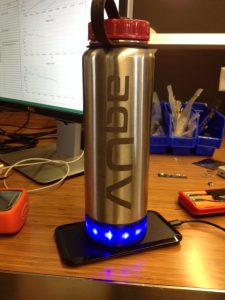
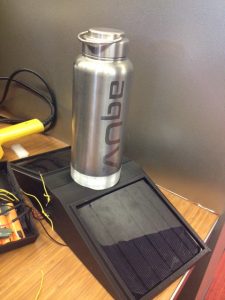
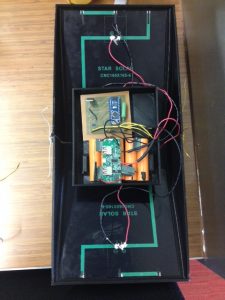 station.
station. 